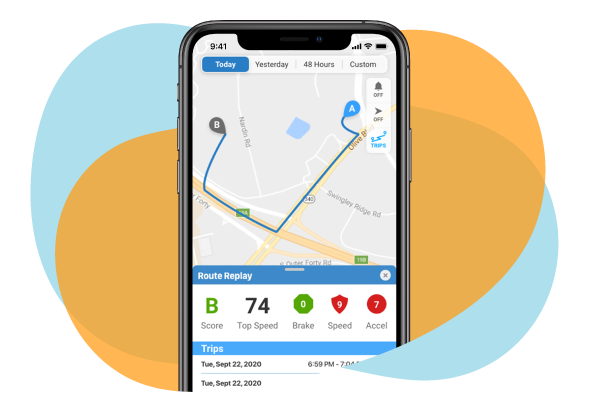
By Dave Holland / Posted November 21, 2016
Preparing for Emergencies: What to Do If Stranded
Every driver dreads finding themselves on the side of the road with a car that has broken down. For teen drivers who are still learning the rules of the road and experiencing the nervous excitement of newfound freedom, the experience of having a car stop running can be terrifying. Like most driving skills, talking them through what to expect and how to prepare for such an experience can make all the difference to their safety.
Avoidance is the best strategy
Cars are advanced pieces of machinery with a lot of moving parts—something failing is inevitable. But there are some easy things your teen can do to try and avoid the most common reasons to get stranded on the road.
- Maintain battery life. First, make sure your teen understands that the battery doesn’t just keep the radio running and the lights on. If the battery dies, the car will not start. So it’s very important that they know how to maintain the battery properly. Remind them not to leave headlights on when they leave the car. Have them pay attention when they start the car; if the engine cranks slowly, the battery may be about to die.
- Pay attention to recall notices. If something is defective with the car, a notice should be mailed to the registered owner, or a dealer may alert you during a maintenance appointment. Neither method is foolproof, so drivers should be proactive about checking to see if recent recalls have been issued. Keep track by periodically visiting the manufacturer’s website or visiting safercar.gov.
- Take proper care of tires. A flat tire is one of the most common reasons to get stranded. Make sure your teen knows how to change a tire safely and has the needed tools.
- Follow recommended maintenance schedules. The best way to keep a vehicle in good working order is to keep up with recommended maintenance: oil changes, fluid checks, tune-ups. MOTOsafety’s maintenance alerts can help your teen keep up-to-date with car care requirements.
How to handle a stall
Even with the best preparations, there’s a good chance that at some point your teen will be on the side of a road with an inoperable car. At this point, safety is the top concern. Make sure your teen knows the most important steps to take.
- Pull off the road. If possible, they should pull onto the right shoulder of the road. Remember to signal, and try to remain on level ground. If they can only reach the left shoulder, they should try to pull as far away from moving traffic as possible. If it is impossible to leave the road, tell them to turn on the hazard lights.
- Note the vehicle’s location. If your teen needs to convey their location to roadside assistance or the police, tell them to take note of landmarks such as service stations, restaurants, shopping centers, and businesses. Fortunately, with a MOTOsafety GPS tracker, finding your teen’s location is a simple matter of checking your app or logging into your portal and you can help convey that information.
- Call for help. Make sure your teen has all helpful phone numbers (work, cell, neighbors or other family members) programmed into their phone. If you subscribe to a roadside assistance program, they should have that contact information and membership number available as well. If they cannot locate help, tell them it’s OK to contact 911.
- Become visible. Once help has been contacted, they need to make the vehicle visible to other motorists. Turn on hazard lights, especially at night or in bad weather. Raise the vehicle’s hood.
- Wait safely and comfortably. Depending on location and time of day or night, it may take some time before help can arrive. Keeping some basic supplies in the car at all times can keep your teen comfortable and safe while they wait. Help them put together an emergency pack including: a blanket or sleeping bag, phone charger, jumper cables, a few snacks and a bottle of water, flashlight, and first aid kit.
With a little preparation and planning, your teen should be able to handle a breakdown safely and calmly, and be back on the road quickly.

- Installs in seconds
- Rates driver performance
- Monitors safe driving behaviors
- Shows location in real time
- Generates alerts for speeding and more
- Signals unauthorized usage

Next Post
Preventing Road Rage in Teens
December 5, 2016Emotions can run high on the road and cause drivers to make poor and dangerous decisions. Recent data from the National Highway Traffic Safety…
Previous Post
Basic Car Maintenance Tips for Teens
November 7, 2016If your teen or college student is driving a car equipped with MOTOsafety, they have an advantage when it comes to keeping their car in great…


